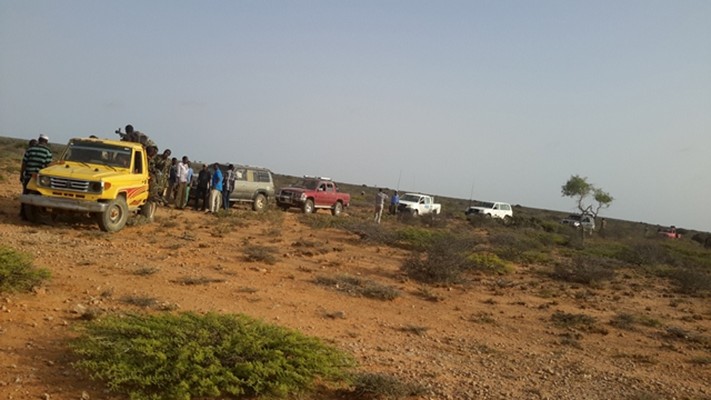Remoteness not a Challenge for the Poliovirus
But a major challenge for polio fighters and requires complex coordination

24 July 2014 – PUNTLAND, Somalia: UN agencies in Somalia combined forces once again to help a joint UNICEF and WHO team visit a remote district of Puntland in north east Somalia where four people have contracted polio this year.
The victims – a young father who died and three children who were paralysed – all came from Jariban district, a long drive on a dusty track from the nearest main town Galkayo in an area known for pirates and armed gangs. As these were the only four polio cases in Somalia so far this year, it was essential to visit the area to discover how the virus got there and how to stop it spreading further. However the terrain, distance, logistics and above all security concerns made it an extremely challenging proposition.
After coordination and cooperation involving at least four UN agencies, the convoy set off on at dawn on 22 July and drove seven hours from Galkayo to Jariban town, where the team met a group of elders to discuss the outbreak and raise awareness. The town has only one Mother and Child Health clinic run by the Red Crescent Society but no hospital or other facilities. The following day they drove another three hours to Towfiq village where they visited the family of the 29 year old man who had died after contracting polio.
‘This was a very sad visit – the man’s wife said she and their five children had been vaccinated but he had not. He was the only breadwinner in the family,’ said Dr. Abraham Mulugeta, WHO Somalia’s Polio Team Leader.
The three children who were paralysed by polio this year live in villages close to Towfiq that are only accessible on foot, so the team could not visit them. However experts had already met one of the children, two year old Asha, who had earlier been brought by her mother who was desperate for help to Galkayo.
While in Towfiq, the team watched the door to door vaccination campaign for children – the third round of vaccinations since the outbreak was discovered in the area in May this year. There will be another campaign in August in the whole of Mudug region and surrounding areas, for adults as well. There is no health facility in Towfiq so these campaigns are crucial to stop the virus spreading.
Vaccinators have been selected from the local community, and clan leaders and elders are being informed about the need for vaccination. More volunteers have been recruited to search actively for any cases of paralysis so that any polio can be swiftly found and the community adequately protected.













